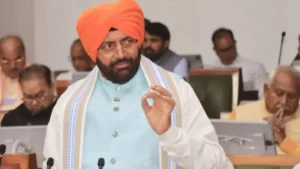In a significant move to enhance social security and address the challenges faced by marginalized communities, Chief Minister Hemant Soren of Jharkhand announced a reduction in the qualifying age for old-age pensions. The decision primarily targets tribals and Dalits, lowering the age threshold from 60 to 50 years. This bold initiative aims to provide financial support to a broader segment of the population, acknowledging the specific challenges faced by these communities.
Pensions for the Elderly: A Paradigm Shift
Chief Minister Hemant Soren highlighted the historical context, emphasizing that, in the two decades following Jharkhand’s formation in 2000, only 16 lakh people received pension benefits. However, under his government’s tenure, pensions have been extended to an impressive 36 lakh individuals, predominantly those aged above 60 years. This shift reflects a commitment to address the financial needs of the elderly population and recognize their contributions to society.
Inclusive Approach for Tribals and Dalits
The pivotal announcement during the event at Ranchi’s Morabadi ground signifies a strategic approach to inclusivity. By extending pension benefits to tribals and Dalits at the age of 50, Chief Minister Soren acknowledged the challenges faced by these communities, including a higher death rate and limited employment opportunities after the age of 60. The decision reflects a proactive stance in mitigating socio-economic disparities.
Four Years of Welfare Initiatives
During the function marking the completion of four years of the JMM-led government in the state, Chief Minister Hemant Soren highlighted the achievements of his administration. Over this period, pension benefits were extended to various segments of the population, including individuals above 60 years of age, widows above 18 years of age, and physically challenged persons. The government’s commitment to social welfare is evident in the implementation of numerous schemes, with a focus on improving the lives of its citizens.
Aapki Yojna, Aapki Sarkar, Aapke Dwar: Government’s Outreach Program
Chief Minister Soren stressed the government’s relentless efforts in implementing a multitude of schemes for the welfare of the people. The ‘Aapki Yojna, Aapki Sarkar, Aapke Dwar‘ outreach program stands out as a pioneering initiative. This program aims to deliver the benefits of government schemes directly to villagers at their doorsteps, ensuring that the advantages of these schemes reach every corner of the state.
Inclusive Pension Scheme for Transgenders
In a progressive move in September of the same year, the Jharkhand government expanded its universal pension scheme to include the transgender community. To avail the benefits of the pension scheme, transgenders are required to obtain a certificate from the deputy commissioner’s office, marking a step towards social inclusion and security for this marginalized community.
Important Questions Related to Exams
1. According to Chief Minister Hemant Soren, why did the government decide to provide pension benefits to tribals and Dalits at the age of 50?
a) To encourage early retirement
b) High death rate and limited job opportunities after 60
c) To align with international standards
2. Which community was added to Jharkhand’s universal pension scheme in September to promote social security and inclusivity?
a) Senior Citizens
b) Transgender
c) Farmers
3. What is the focus of the government’s outreach program ‘Aapki Yojna, Aapki Sarkar, Aapke Dwar’ in Jharkhand?
a) Industrial development
b) Improving healthcare
c) Delivering government scheme benefits to villagers at their doorsteps
Please provide your answers in the comments section




 Haryana Unveils ₹2.23 Lakh Crore Budget ...
Haryana Unveils ₹2.23 Lakh Crore Budget ...
 President Droupadi Murmu Launches 4 Majo...
President Droupadi Murmu Launches 4 Majo...
 Kuno National Park Records First Sightin...
Kuno National Park Records First Sightin...








